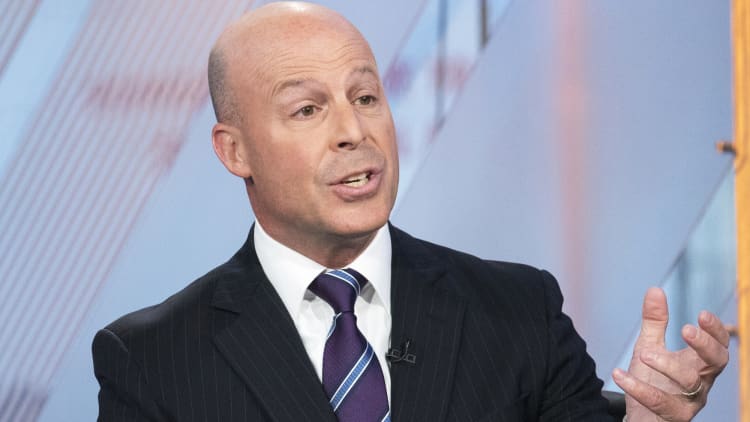A buyout of Juno Therapeutics could help Celgene diversify its drug portfolio as its No. 1 cancer treatment, which accounts for the bulk of its sales, approaches patent expiration, analysts say.
Celgene loses patent protection by 2022 for Revlimid, its top-selling multiple myeloma drug that brought in about 60 percent of fiscal third quarter revenue of nearly $3.3 billion.
"The clock is ticking," Mike Bailey, director of research at FBB Capital Partners, told CNBC. Once the patent runs out, Celgene could feel pressure from generics within a few years, he said.
Some analysts said the impact could be blunted through acquisitions.
Salim Syed, senior biotech analyst at Mizuho Securities, told CNBC that shareholders have been pressing New Jersey-based Celgene to make more acquisitions and boost its stock price.
Earlier this month, Celgene agreed to buy privately held Impact Biomedicines for as much as $7 billion, making the reported Juno interest surprising to some industry watchers.
The Wall Street Journal reported late Tuesday that Celgene is in talks to buy Juno, whose shares shot up more than 50 percent the next day and were up more than 2 percent on Thursday. Juno told CNBC it doesn't comment on market rumors or speculation. Celgene did not immediately respond to CNBC's request for comment.
It's unclear how much Celgene would pay for Juno, which had a market value of $7.9 billion as of Wednesday's close of trading.
Syed said investors could argue, however, that Celgene already has a decent collaboration with Juno and therefore does not need to do a deal.
Celgene is working with Seattle-based Juno on an experimental new gene therapy designed to treat people with relapsed or refractory aggressive B-cell non-Hodgkin lymphoma.
The treatment is a type of so-called CAR T-cell therapy — taking a patient's own immune cells, called T cells, genetically manipulating them to attack specific proteins on cancer, and infusing them back into the patient.
David Nierengarten, head of health-care equity research at Wedbush, told CNBC, "Juno wasn't on my list of companies being acquired in the near term."
But he said, "Celgene has a big revenue hole to fill over the next few years" and Juno's treatment could potentially "fill that gap."
Nierengarten also sees the potential value in Celgene owning Juno before a product launch "so they can have control over the regulatory process" as well as "setting up sites and infrastructure for this kind of therapy."
Juno said it could expect approval for its treatment as early as the end of 2018.
CAR T-cell therapy is a highly competitive and potentially lucrative area of biotechnology.
Novartis and Gilead Sciences already received the first two approvals of CAR T for other types of cancer. For one-time treatments, they cost $475,000 and $373,000, respectively.
WATCH: Celgene to buy Impact Biomedicines in $7 billion deal



